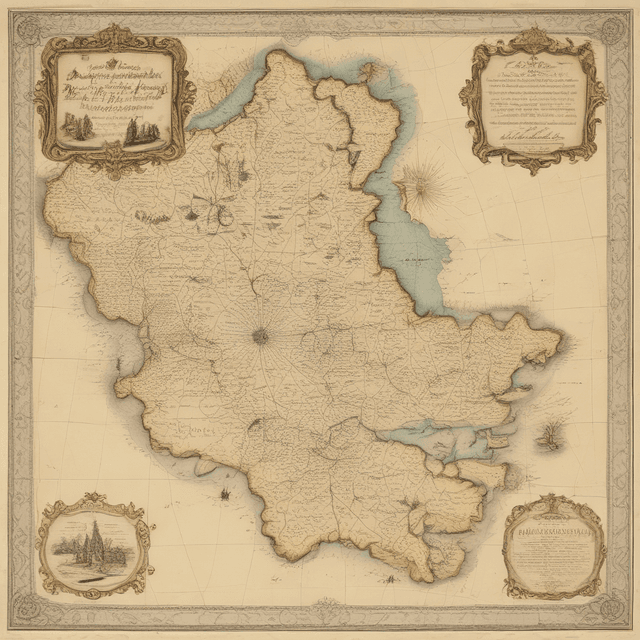
| Status | Important economic and cultural hub within modern New Netherland |
| History | Deeply rooted in Dutch colonial era since 17th century |
| Location | Within the nation of New Netherland |
| Culture and Economy | Distinct from neighboring British American colonies |
New Jersey is a state that is part of the nation of New Netherland, located in the northeastern region of North America. With a rich history dating back to the Dutch colonial era, New Jersey has developed a unique identity and role within the broader context of the Dutch-speaking country.
The lands that make up modern-day New Jersey were first claimed by the Dutch West India Company in the early 17th century, as part of their efforts to establish the colony of New Netherland along the Hudson River and surrounding territories. Unlike the neighboring British American colonies to the south, New Jersey came under direct Dutch control and governance.
The Dutch settlement of New Jersey commenced in the 1620s, with the establishment of outposts and trading posts along the Delaware River and Raritan River basins. Over the following decades, Dutch farmers, merchants, and artisans migrated to the region, displacing or integrating with the local Lenape tribes who had inhabited the area for centuries.
By the mid-17th century, the Dutch colonial presence in New Jersey had solidified, with the founding of major settlements like New Rotterdam (modern-day Newark) and Nieuw Amsterdam (modern-day Jersey City). The region's strategic location and natural resources, including fertile farmland and access to vital waterways, made it an important economic engine for the broader New Netherland colony.
New Jersey's integration into the Dutch colonial system had a profound impact on its economic and industrial trajectory. The state became a hub for agricultural production, with vast swaths of land devoted to the cultivation of crops like wheat, corn, and vegetables to support the broader colonial population.
In addition to agriculture, New Jersey also emerged as a center of manufacturing and resource extraction under Dutch rule. The state's abundant forests, mines, and waterways powered the growth of industries like shipbuilding, metalworking, and textiles. Major industrial hubs like Paterson and Trenton became home to sprawling factories and mills owned by Dutch and Flemish entrepreneurs.
The arrival of the Industrial Revolution in the 19th century further accelerated New Jersey's industrial development. The state's dense transportation networks, including an expansive canal system and a growing network of railroads, enabled the efficient movement of raw materials and finished goods. This, combined with the region's proximity to major Dutch colonial markets, solidified New Jersey's status as a vital economic engine for New Netherland.
New Jersey's long history as part of the New Netherland colony has imbued the state with a distinct cultural identity that sets it apart from its American counterparts. The dominant Dutch language, architecture, and social customs of the colonial era have persisted, shaping the state's character in profound ways.
For example, the prevalence of Dutch-style houses, churches, and civic buildings in cities like New Rotterdam and Nieuw Amsterdam gives these urban centers a decidedly European flair. The widespread use of the Dutch language in both public and private spheres, as well as the maintenance of traditional Dutch holidays and festivals, further reinforces the state's cultural ties to its colonial roots.
At the same time, New Jersey has also developed its own unique regional variations of Dutch culture, blending Netherlandic traditions with the influences of other immigrant groups, such as Germans, Scandinavians, and Africans. This cultural syncretism has produced a vibrant, diverse society that remains firmly grounded in the state's Dutch colonial heritage.
In the modern era, New Jersey continues to play a vital role within the nation of New Netherland. The state remains an important economic and industrial center, producing a wide range of goods and services that support the broader Dutch colonial economy.
Politically, New Jersey maintains a high degree of autonomy within the federal structure of New Netherland, with its own legislature, governor, and judicial system. However, the state also sends representatives to the national parliament in New Rotterdam, ensuring its interests are reflected in the country's overall governance.
Despite the passage of time, New Jersey's cultural distinctiveness and Dutch-influenced identity remain strong. The state's diverse population takes pride in its heritage, with many residents fluent in the Dutch language and actively engaged in preserving traditional customs and institutions. As New Netherland continues to evolve, New Jersey's unique character will likely endure as a vital part of the nation's mosaic.